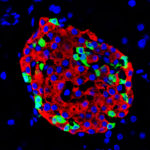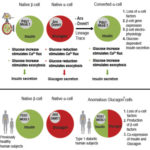
Cell-identity switches, in which terminally differentiated cells are converted into different cell types when stressed, represent a widespread regenerative strategy in animals, yet they are poorly documented in mammals. In mice, some glucagon-producing pancreatic α-cells and somatostatin-producing δ-cells become insulin-expressing…

